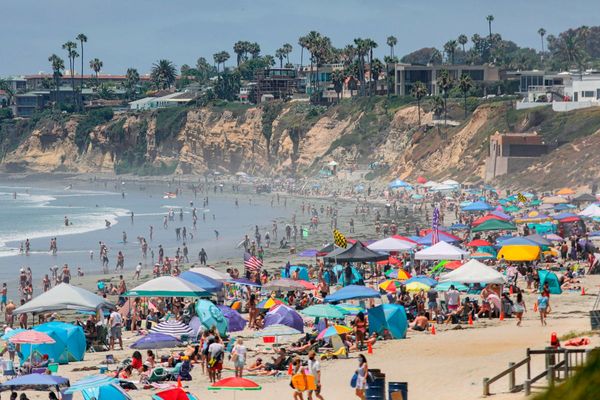
Saudi Aramco is planning a $6 billion expansion at its South Korean refining unit as the state-owned producer signs deals to ensure long-term demand for its crude in Asia.
Saudi Crown Prince Mohammed bin Salman took Aramco’s Chief Executive Officer Amin Nasser with him to Korea during a visit that saw a raft of deals from crude supply to ship building and automobile industry projects signed between the two countries. Aramco, officially known as Saudi Arabian Oil Co., and other Saudi businesses agreed to $8.3 billion worth of projects with Korean companies during the visit, the Korean energy ministry said.
Prince Mohammed is leading the push to transform the crude-dependent Saudi economy by developing new industries at home. Korea Shipbuilding & Offshore Engineering Co. was among the companies that agreed to set up businesses like ship building and servicing in the kingdom, which is the largest supplier of oil to South Korea.
That doesn’t mean the Saudis are turning their back on their cash cow. Aramco signed deals for crude supply and storage in Korea aimed at guaranteeing access to Asian markets. The state producer, which aims to nearly double refining capacity to about 10 million barrels a day by the end of the next decade, is investing in processing and chemical plants overseas to ensure it’s got buyers for its oil as competition from other suppliers increases.
Aramco, plans to add units at its S-Oil Corp. refining venture in South Korea by 2024 to help further process oil into chemicals, the two companies said in separate statements. It will expand the 669,0000 barrel-a-day refinery and chemical complex at Onsan on Korea’s east coast by adding a steam cracker and olefins unit. S-Oil will study using technology that will allow it to transform crude directly into chemicals. Aramco owns around 63% of S-Oil.
Like other Middle East oil producers, Aramco is moving into petrochemicals as a way to earn more from its energy deposits. The push into Asia highlights the importance of seaborne transit for crude and products. Amid tensions with Iran over the Strait of Hormuz, CEO Nasser stressed that Aramco remained prepared to supply markets even if disruptions to traditional trade routes occur.
To contact the reporters on this story: Heesu Lee in Seoul at hlee425@bloomberg.net;Shinhye Kang in Seoul at skang24@bloomberg.net;Anthony DiPaola in Dubai at adipaola@bloomberg.net
To contact the editors responsible for this story: Nayla Razzouk at nrazzouk2@bloomberg.net, Andrew Janes, Serene Cheong
©2019 Bloomberg L.P.







